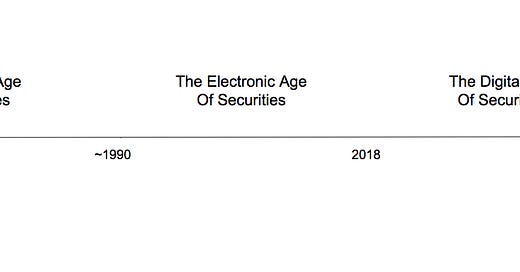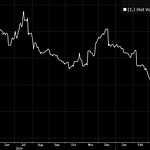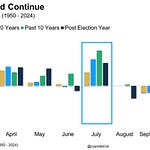This installment of The Pomp Letter is free for everyone. I send this email to our investors daily. If you would also like to receive it every morning, join the 75,000 other investors today.
To investors,
Everyone is well aware of my bullish outlook on Bitcoin as the next global reserve currency. The digital application of sound money principles appears to be the solution to many of the world’s most difficult economic issues at the moment. Contrary to popular belief though, I’m not a Bitcoin maximalist.
I believe that there will be many different digital technology innovations that occur over the coming 10-20 years. One of those innovations is in the digital art space, where I foresee a seismic shift from analog art to digital. Just as Bitcoin is superior to gold as a store of value, I believe digital art is superior to analog art. Which blockchain this occurs on will be debated by the market, so I won’t waste time discussing that here.
Another innovation that I have been bullish on for years is tokenization. You have probably heard me say that “every stock, bond, currency, and commodity will be tokenized.” This mantra encompasses many different ideas, but the core belief is that the assets and market participants will remain the same, while the technology form factor will improve.
I’ve explained this idea before using the following framework:

The Analog Age of Securities required physical assets (stock certificates, mortgages, etc). The Electronic Age of Securities required electronic CUSIPs to serve as the representation of the physical assets which remained in centralized custody (ex: DTCC). These electronic CUSIPs move from one centralized database to another and require lengthy/inefficient settlement procedures.
The Digital Age of Securities is where we are now. It is still really, really early. The writing is on the wall though — the idea of market participants trading tokenized stocks, bonds, currencies, and commodities seems like a foregone conclusion. The technology is better. It provides cheaper, faster, and more efficient trading for investors. Digital assets open the financial system to a broader set of global participants.
And now it appears that government regulators are starting to see the same future that I have been talking about. According to Yogita Khatri of The Block:
“In a webinar hosted by the Chamber of Digital Commerce on Friday, Clayton said all stock trading is today electronic, compared to 20 years ago. In the past, there were stock certificates, and today there are digital entries representing stocks. "It may be very well the case that those all become tokenized," said Clayton.
The webinar, titled "Two Sides of the American Coin: Innovation & Regulation of Digital Assets," focused on what is needed to grow the blockchain and crypto space. Brian Brooks, the acting comptroller of the currency at the Office of the Comptroller of the Currency (OCC), also participated.
Both Clayton and Brooks said that they welcome innovation in the crypto space, but of course, within regulatory frameworks.”
This is important to hear Jay Clayton and Brian Brooks focusing on this talk track. It shows that they are not anti-Bitcoin or anti-crypto. They see the potential for innovation and positive impact. It appears they just want to see working products that follow the existing legal framework.
Here is my favorite prediction about how this is all going to unfold — I believe the SEC is eventually going to mandate every company and traditional exchange to tokenize the securities that are traded in the market. This would allow regulators to become proactive in their security law enforcement and would save them enormous amounts of time, money, and energy.
It is inefficient and costly for two investors to do something that breaks the rules, then have the SEC build a case and enforce the law. In this Digital Age of Securities, the law will be written into code and specific actions will be prevented from occurring. The easy example I always use is the following:
Every investor’s digital wallet will have specific information associated with it. (Are you accredited? What geography do you reside? What are you allowed to own or not allowed to own?)
Every asset or security will have specific information coded into the token (who issued the asset? is it only available for accredited investors? non-accredited investors? certain geographies it can not trade in? are there limits on how much someone can own?)
As one investor wants to buy/sell an asset, the code will instantaneously check and confirm that the transaction meets all of the regulatory requirements. This will prevent illegal or ill-advised transactions, while ushering in a more efficient system for the market.
The key to this vision is that regulators will actually be creating a safer, more efficient marketplace by mandating the transition to digital assets. Most people question whether the regulators have the power to mandate something like this, but we have seen them do similar things in the past. They mandated the use of the Edgar database and they mandated the inclusion of XML technology as well. There is little difference in mandating the future implementation of digital assets — every asset will still be the same stock, bond, currency, or commodity, and every market participant will be the same, but the assets will simply be in this new technology form factor.
So what are the hurdles to having this world built?
The easy one is time and the hard one is technology. Creating innovative technologies like we are discussing today take an inordinate amount of time. You need smart people, who are well funded, working for years to build a system that can work at global scale. If you’re going to be handling trillions of dollars of transactions, then you better make sure you have everything set up and operating properly.
The technology hurdle is much more controversial. Everyone is financially incentivized to believe that their blockchain of choice is going to be the winner. If you ask me, I’ll explain why I believe the most secure chain (Bitcoin) will ultimately be the home for transacting any asset. If you ask an Ethereum believer, they will explain all sorts of things about DeFi, etc. If you ask someone who is working on a different chain, they will scream about some technical component or advantage they believe they have.
Ultimately, no individual’s opinion matters. The market will decide the winner. This disagreement on the future winner is exactly how markets get made. Some people will be right and some will be wrong. Some will create enormous fortunes. Others will destroy wealth. It is a cycle that has happened over and over again whenever there is technological innovation.
While the debate about “where will it happen?” rages on, one thing is very clear — every stock, bond, currency, and commodity will eventually be tokenized. Don’t believe me? You probably didn’t know that the largest HELOC-backed bond in a decade was recently settled over a blockchain by portfolio company Figure Technologies:
“Mike Cagney’s blockchain lending startup Figure Technologies has provided collateral for the biggest bond backed by home equity lines of credit since the American housing collapse over a decade ago.
The $308 million unrated securitization was sponsored by alternative real estate finance firm Saluda Grade and priced earlier this week. The offering is the second securitization of Figure-originated loans and one of the first asset-backed securitizations to be completed entirely on blockchain….The Heloc loans backing the deal were originated, serviced, financed and sold on Figure’s affiliated blockchain, Provenance. Figure, a non-bank lender, has originated more than $1 billion of Helocs since its founding in 2018 and expects more demand for the product as the large traditional banks retrench.”
Just a matter of time before this becomes commonplace. Even the regulators are starting to talk about it publicly :)
-Pomp
This installment of The Pomp Letter is free for everyone. I send this email to our investors daily. If you would also like to receive it every morning, join the 75,000 other investors today.
THE RUNDOWN:
SEC Is Willing to ‘Try’ a Tokenized ETF, Chairman Says: Securities and Exchange Commission (SEC) Chairman Jay Clayton said the regulatory body’s open to the idea of a tokenized exchange-traded fund, according to a report by Decrypt. "We're willing to try that: our door is wide open," the report quoted Clayton as saying in a webinar yesterday with the Chamber of Digital Commerce. Read more.
Coinbase Employees Have Begun to Take Severance Packages: Companies can’t become “apolitical” overnight. According to multiple Coinbase workers, the plan to offer a clean exit for mission-dissenting staffers has been in the works for six months. So far, at least three people in the 1,200-person firm have taken the severance package, one of these sources told CoinDesk on Friday. Read more.
Digital Euro Will ‘Protect’ Eurozone From Foreign Issuers, Says ECB Exec: An executive at the European Central Bank has said a future digital euro initiative could save the eurozone from relying on digital currencies issued by foreign entities. In a post on Friday, ECB executive member Fabio Panetta, formerly head of the Italian central bank, said the envisioned aim of a central bank digital currency would be to "preserve the public good that the euro provides to citizens."Read more.
Facebook, Google and Twitter CEOs to Testify Before Congress on Oct. 28: The CEOs of Facebook, Google and Twitter have agreed to testify before the Senate Commerce Committee on Oct. 28. Facebook CEO Mark Zuckerberg, Google and Alphabet CEO Sundar Pichai and Twitter CEO Jack Dorsey will testify on Section 230 of the Communications Decency Act. That rule protects tech companies from liability over the content posted by users on their online services, while allowing them to moderate it. The hearing will also cover the topics of privacy and “media domination.” Read more.
Belarus News Media Are Testing Decentralized Tech to Resist Censorship: Belarus is cracking down on reporters. The nation’s government, led by President Alexander Lukashenko, whose election was mired in controversy and has not been recognized by the European Union, announced Friday it was canceling the press accreditations for all foreign journalists immediately. The move comes as Belarus continues blocking its citizens from accessing local media websites, including the Belarusian branch of Radio Free Europe/Radio Liberty, in the wake of a massive, three-day internet outage and weeks of protests over the Aug. 8 election. Now, some media outlets are fighting back. To make their mobile apps more resilient, some Belarusian news organizations are using NewNode, a decentralized file-sharing service by the California-based startup Clostra, which basically runs on the same principle as torrents. Read more.

LISTEN TO THIS EPISODE OF THE POMP PODCAST HERE
David Kinitsky is the CEO of Kraken Financial, the first approved SPDI bank under Wyoming's new crypto-friendly legislation. He previously worked at Circle, Fidelity, and Grayscale Investments as well. This episode is packed with information and a look into the future.
In this conversation, David and I discuss:
The SPDI banking license
What it allows
Why Kraken applied
How incumbents are likely to react
What users can expect from the business moving forward
I really enjoyed this conversation with David. Hopefully you enjoy it too.
LISTEN TO THIS EPISODE OF THE POMP PODCAST HERE
Podcast Sponsors
These companies make the podcast possible, so go check them out and thank them for their support!
Athletic Brewing is re-imagining beer for the modern adult. They love beer. But they also love being healthy, active and at their best. The non-alcoholic beers are fully flavored, clean ingredient, and a fraction of the calories of full strength beer - they fit in any occasion. Check out www.athleticbrewing.com for more details and free shipping nationwide.
Choice is a new self-directed IRA product that allows you to buy Bitcoin with tax-advantaged dollars, while still holding your private keys. You can go to retirewithchoice.com/pomp to sign up today.
Unstoppable Domains is working to make the internet operate how it was originally intended, which means anyone can publish anything from anywhere. You can go to unstoppabledomains.com and claim your censorship resistant domain today.
BlockFi provides financial products for crypto investors. Products include high-yield interest accounts, USD loans, and no fee trading. To start earning today visit: http://www.blockfi.com/Pomp
Crypto.com allows you to buy, sell, store, earn, loan, and invest various cryptocurrencies in an user friendly mobile app. Join over one million users today. You can download and earn $50 USD with my code “pomp2020” when you sign up for one of their metal cards today.
Coinlist — Smart investors know being early is critical to success in crypto. CoinList is where early adopters invest in, earn, and trade the best new crypto assets before they list on other exchanges. Sign up via coinlist.co/pomp and earn $10 in BTC after you trade $100.
If you enjoy reading “The Pomp Letter,” click here to tweet to tell others about it.
Nothing in this email is intended to serve as financial advice. Do your own research.













Share this post